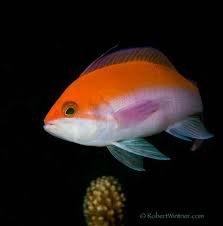
The Yangtze River, known as the Chang Jiang in Mandarin, is one of the longest and most significant rivers in China, stretching over 6,300 kilometers and flowing through diverse landscapes and cultures. It has been a central figure in Chinese civilization for thousands of years, influencing the development of agriculture, culture, and mythology. One of the most captivating aspects of the Yangtze River’s rich legacy is its connection with the mythological dragon. Dragons are deeply embedded in Chinese folklore, often symbolizing power, strength, and the natural forces of the world, and the Yangtze River has long been associated with dragon myths and legends.
This article explores the role and symbolism of the dragon in the stories and legends surrounding the Yangtze River, delving into how these mythical creatures are represented as powerful, mystical beings that shape the river’s history and cultural significance.
1. The Dragon and the Yangtze River: A Cultural Connection
The Yangtze River is often referred to as the “dragon’s spine,” symbolizing its immense significance to Chinese culture and history. Just as the dragon is revered as a powerful, mythical creature in Chinese mythology, the Yangtze River is seen as a force of nature with the power to shape the land, sustain life, and create prosperity. The river and the dragon share a deep connection, and the stories of dragons in relation to the Yangtze River highlight the importance of this waterway in Chinese culture.
The Chinese dragon is considered a symbol of auspiciousness, representing the forces of nature and the balance of the cosmos. The dragon’s connection to water is especially prominent, as it is believed to control rainfall, rivers, and other water bodies. In this context, the dragon’s influence over the Yangtze River can be seen as a symbol of the river’s life-giving and destructive powers, as well as its role in Chinese cosmology.
In ancient Chinese mythological traditions, the Yangtze River was not just a physical entity; it was personified as a sacred and mythical river, inhabited by dragon spirits. The presence of dragons in the legends of the Yangtze River reflects its importance in shaping the natural and spiritual world.
2. The Dragon’s Role in Chinese Mythology and the Yangtze River
Dragons in Chinese mythology are seen as powerful, often benevolent creatures that embody forces of nature, wisdom, and transformation. Unlike Western depictions of dragons as fierce, destructive creatures, Chinese dragons are revered for their control over the elements, particularly water. They are said to reside in oceans, rivers, and lakes, making the Yangtze River a natural home for these mythical beings.
One of the most well-known legends that links the dragon to the Yangtze River is the story of the Dragon King (龙王, Long Wang). According to Chinese mythology, the Dragon King is a ruler of the waters, governing the rivers, seas, and lakes. The Dragon King’s role in the Yangtze River legends symbolizes the river’s power to control and influence the weather, agriculture, and the prosperity of the land. The Dragon King’s dominion over the river is not only a reflection of his status as a mythological figure but also a representation of the reverence that ancient Chinese people held for the Yangtze River.
In some variations of the Dragon King myth, the Dragon King is portrayed as being responsible for the flooding and droughts along the Yangtze River. His moods and actions were believed to directly influence the river’s flow, making him both a figure of worship and fear. Farmers, for example, would offer prayers and sacrifices to the Dragon King, hoping for favorable conditions and abundant harvests.
The relationship between the Yangtze River and the Dragon King is a reflection of the deep connection between the Chinese people and the forces of nature. As the Yangtze River is crucial to the sustenance of life in China, so too is the Dragon King an essential figure in maintaining the balance of nature and ensuring the prosperity of the land.
3. The Legend of the Dragon Gate: Transformation Through the Yangtze River
One of the most famous dragon-related legends associated with the Yangtze River is the myth of the Dragon Gate (龙门, Longmen). According to this legend, a carp that swam upstream and successfully leapt over the Dragon Gate waterfall would transform into a mighty dragon. This myth is closely linked to the Yangtze River, as the Dragon Gate waterfall is said to be located in the section of the river that runs through the province of Sichuan.
The story of the carp’s transformation into a dragon is symbolic of the perseverance and determination needed to overcome challenges and obstacles in life. In Chinese culture, the carp is seen as a symbol of hard work and tenacity, and the myth of the Dragon Gate serves as a metaphor for personal and spiritual transformation. The Yangtze River, with its treacherous currents and challenging terrain, represents the trials and hardships that individuals must overcome in order to achieve greatness. The carp’s leap over the waterfall signifies the moment of transcendence, where the ordinary becomes extraordinary, and the individual is transformed into something more powerful.
This legend highlights the spiritual connection between the river and the dragon, as well as the dragon’s association with transformation, strength, and the potential for greatness. The Yangtze River serves as a conduit for this transformation, and the dragon symbolizes the potential for individuals to rise above their circumstances and achieve success.
4. The Dragon and the Floods of the Yangtze River
The Yangtze River is infamous for its catastrophic floods, which have claimed lives and reshaped landscapes throughout history. In Chinese folklore, floods are often seen as the result of the river’s connection with the dragon. In times of excessive rain or flooding, the people would attribute the disasters to the anger of the river’s dragon spirits. The floodwaters were believed to be a manifestation of the dragon’s wrath, which could be either destructive or restorative depending on the circumstances.
The story of the Great Flood (大洪水, Dà hóngshuǐ), a legendary event in Chinese mythology, is closely tied to the Yangtze River. In this story, a great flood overwhelms the land, and the dragon plays a significant role in either causing or mitigating the disaster. The myth suggests that the dragon’s behavior and mood could have direct consequences for the health and stability of the river.
In some versions of the legend, the floodwaters are seen as a way for the river dragon to cleanse the land, removing impurities and restoring balance to the environment. In other stories, the flooding represents the unpredictable and uncontrollable forces of nature, reminding people of their vulnerability to the power of the dragon and the river.
The Yangtze River’s history of devastating floods further underscores the importance of the river in Chinese mythology and the role of the dragon as both a protector and a destroyer. The dragon’s influence over the river’s waters serves as a reminder of the delicate balance between nature and humanity, where both can coexist in harmony or clash in catastrophic ways.
5. The Yangtze River as a Sacred Waterway: Dragon Rituals and Offerings
In traditional Chinese culture, rivers and waterways were often considered sacred, and the Yangtze River was no exception. Many legends surrounding the river feature rituals and offerings to appease the dragon spirits believed to inhabit the waters. These rituals were often performed by local communities to ensure the river’s calm flow, prevent floods, and secure good harvests.
One such ritual was the Dragon Boat Festival (端午节, Duānwǔ Jié), which is still celebrated today. The festival, held on the fifth day of the fifth month of the lunar calendar, honors the dragon spirits of the Yangtze River and is marked by dragon boat races, sacrifices, and prayers. The festival is rooted in ancient beliefs that the dragon spirits controlled the river’s flow and could be called upon for protection and blessings.
During the festival, people would sail dragon boats on the river, symbolizing the strength and power of the dragon. Offerings of food and incense would be made to the river, as a way of showing respect to the dragon spirits and asking for their favor. The dragon, in this context, is seen as a benevolent force, capable of guiding the people and ensuring the prosperity of the land.
The continued practice of the Dragon Boat Festival reflects the deep cultural connection between the Yangtze River, the dragon, and the people who live along its banks. It serves as a reminder of the reverence for the river and the dragon’s power to shape the natural world.
6. The Dragon and the Yangtze River: A Metaphor for Life and Spirituality
The dragon’s presence in the legends of the Yangtze River is not just a reflection of physical power or supernatural influence; it also carries deep metaphorical and spiritual significance. The dragon represents the forces of nature, the cycles of life, and the connection between the material and spiritual worlds. In many of the river’s myths, the dragon embodies the journey of transformation, as individuals and communities undergo periods of change, growth, and renewal.
The Yangtze River itself is a powerful symbol of life’s flow – a journey filled with both challenges and blessings. The river’s twists and turns mirror the unpredictability of life, while the dragon, with its wisdom and power, serves as a guide, leading individuals through both calm and turbulent times.
7. Conclusion: The Enduring Symbolism of the Dragon in the Yangtze River Legends
The connection between the Yangtze River and the dragon is an integral part of Chinese mythology, illustrating the importance of the river in shaping the culture, spirituality, and history of China. From tales of transformation and spiritual enlightenment to legends of floods and disasters, the dragon serves as a symbol of the river’s power, mystery, and influence.
The Yangtze River’s association with dragons reflects the deep reverence
that the Chinese people have for the forces of nature and the enduring power of myth. Whether as a symbol of strength, wisdom, or destruction, the dragon’s presence in the Yangtze River legends continues to captivate and inspire those who seek to understand the mysteries of this sacred waterway.
Through these legends, we are reminded of the profound connection between humanity and the natural world, where the river’s life-giving waters and the dragon’s mystical power work together to shape the land, the people, and the stories that have been passed down for generations.





